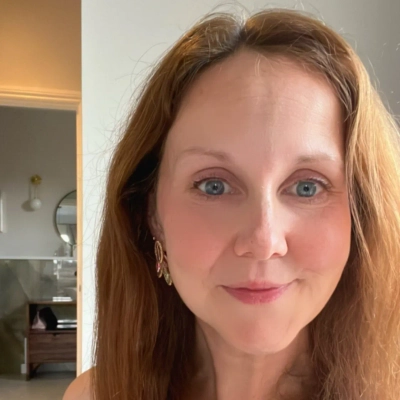22 Leadership Books That Will Transform Your Small Business Management Style
Leadership development remains critical for business success, with expert insights pointing to trust, psychological safety, and intentional influence as key factors. This comprehensive collection offers practical wisdom on transforming management approaches by focusing on team wellbeing, character-based hiring, and creating environments where creativity thrives. Industry specialists emphasize that small, consistent habits and open communication create sustainable growth while balancing the challenge of modern leadership demands.
Build Guardrails for Creativity to Thrive
Creativity, Inc. by Ed Catmull (Pixar) changed how I lead. My biggest takeaway was, you don't "manage" creativity, you build guardrails and tight feedback loops so it can thrive.
After reading it, we adopted a Pixar-style cadence at Eprezto: fast, frequent reviews instead of big, infrequent unveilings. Think "dailies" for product/marketing, small mockups, quick critiques, iterate again.
Two things happened:
1. Iteration speed jumped. Problems surfaced sooner (e.g., funnel friction) and we shipped fixes faster.
2. Psychological safety improved. Regular critique made feedback feel normal; defenses dropped, ideas flowed, and experiments increased.
It transformed my leadership from "approve big deliverables" to facilitating continuous, low-ego improvement, which is exactly what a startup needs.

Embracing Value Creation Over Fearing Competition
"The Go-Giver" by Bob Burg fundamentally changed my approach to leadership by shifting my perspective from fearing competition to embracing value creation. After implementing the book's principles throughout our marketing agency, we experienced remarkable growth, doubling our revenue annually. The concepts resonated so deeply with me that I eventually invited Bob Burg to share his wisdom on my podcast, further reinforcing how this resource transformed not just my business operations but my entire leadership philosophy.
Leadership Podcasts Transform Management Perspective
I've found tremendous value in leadership podcasts like 'The Tim Ferriss Show' and 'How I Built This' which I listen to during my commutes and downtime. These audio resources have significantly transformed my management approach by exposing me to diverse leadership perspectives and practical business insights that I wouldn't encounter in my daily operations. The implementable strategies I've gained from these podcasts have improved my decision-making processes and helped me foster a more innovative work culture. The convenience of podcast learning allows me to maintain continuous professional development despite my busy schedule as a business owner.
Balance Challenge and Care in Feedback
I found Radical Candor: Be a Kick-Ass Boss Without Losing Your Humanity by Kim Scott to be a game-changer. Running incentive, rebate, and rewards programs often involves setting tough expectations, giving feedback, and sometimes changing course. Radical Candor taught me how to do that with both challenge and care: clear feedback grounded in respect.
Since reading it, I have become much more direct and consistent in feedback with the team. That applies when a rewards rollout is not meeting expectations, or when a rebate program's customer experience feels cumbersome. Equally, I make space for saying what is working by recognizing in public those who innovate, whether by designing a better employee recognition rewards scheme or improving customer rebate touchpoints. The shift has improved morale, accelerated problem resolution, and strengthened how our clients perceive Level 6's reliability.
Vulnerability Becomes a Competitive Advantage
One book that shaped my leadership approach is "Dare to Lead" by Brene Brown. Before reading it, I tended to lean heavily on strategy, structure, and execution—things I could measure and control. What I hadn't fully embraced was how vulnerability and courage directly affect culture and performance. The book reframed leadership for me as less about being the person with all the answers and more about creating space where my team felt safe to take risks and innovate.
Since then, I've led with more openness, sharing lessons learned, being transparent about pivots, and encouraging my team to speak up when something isn't working. It's transformed our decision-making and collaboration: people contribute more freely, ideas flow faster, and even mistakes become catalysts for growth instead of setbacks. The insight I took away is that courage and empathy aren't "soft" leadership traits—they're competitive advantages.

Influence Through Trust and Empowerment
The list of books on business, self-awareness, and leadership is massive, and I've taken valuable lessons from many of them. For example, Stephen Covey's principle to "begin with the end in mind" and Dale Carnegie's reminder that "only knowledge that is used sticks in your mind" are thoughtful.
That said, the book that has made the biggest difference for me is The 21 Irrefutable Laws of Leadership by Dr. John Maxwell. In particular the laws of Influence, Navigation, Intuition, and Empowerment reshaped how I approach leadership.
Maxwell writes, "The true measure of leadership is influence—nothing more, nothing less." By respectfully earning influence, a leader can guide behavior and habits in a way that inspires lasting change. Influence is powerful.
The Law of Navigation also resonates deeply with me. Maxwell illustrates it with the story of two explorers racing to the South Pole. The leader who charted the course and prepared his team succeeded; the one who failed to do so met a much harsher fate. To me, this reinforces the importance of vision, planning, and teamwork—leaders don't just set direction, they also ensure their people have what they need to succeed.
Intuition is another principle that shapes how I lead. I've always been a "gut thinker." My intuition reads a situation, considers the facts, makes some assumptions, factors in logic, and then decides. I've worked with engineers who need piles of data and still hesitate; my intuition often allows me to move forward decisively. I'm not always right, but when I'm wrong, I take ownership, learn, and adapt. More often than not, this approach has driven meaningful successes.
Finally, the Law of Empowerment underscores the trust required to truly lead. Empowerment is not just assigning responsibility—it's equipping people with resources, support, and confidence. When I empower someone, it means I trust them to succeed and commit myself to giving them the tools—time, money, people—they need to deliver.
When I think about the books that have shaped how I run my business and approach leadership, many come to mind. But none have spoken louder or left a deeper mark than The 21 Irrefutable Laws of Leadership.
Prioritize Team Wellbeing for Sustainable Success
One book that significantly influenced how I lead my company is Leaders Eat Last by Simon Sinek. The core idea—that leaders should prioritize the well-being of their teams—reshaped the way I think about responsibility. Early in my journey, I was focused heavily on results and speed, sometimes overlooking how pressure affected my team. Reading this book helped me realize that sustainable success comes from creating an environment where people feel safe, valued, and supported.
Practically, it led me to invest more time in open communication and building trust within the team. I began holding regular check-ins, not just about work progress but about how people were doing personally. The transformation was clear: morale improved, creativity flourished, and our retention rate went up. For me, leadership shifted from being about pushing for performance to cultivating a culture where performance naturally thrives.

Mentorship Exceeds Books as Leadership Resource
One "resource" that's significantly changed how I run my business has been my mentor. I think mentorship is a resource no entrepreneur should take for granted. I have received more wisdom from my mentor than I have from any book or podcast. He has helped me learn what my specific leadership strengths are and how I can make the most of those, and he's helped me discover what I need to work on.

Modern Leadership Insights for Today's Challenges
I really like the book called "Be the Unicorn" by William Vanderbloemen. A mentor of mine recommended it to me earlier this year and it was a fantastic read. It's a newer book, and because of that, it's incredibly relevant. It talks about a lot of things unique to leadership today that you won't find in older books, like AI being part of the picture. It helped transform my approach to leadership by allowing me to learn about the specific things that make all of the best leaders stand out from the rest.
Hire for Character Over Skills
Finding a mentor or resource that changes how you lead is a pivotal moment for any business owner, and it's fantastic you're looking for that guidance. My best "leadership resource" wasn't a book; it was a simple, core principle I learned early on. The "radical approach" was a simple, human one.
The process I had to completely reimagine was how I looked at my crew. For a long time, I thought "leadership" meant doing everything myself and then checking everyone else's work. That approach was heading straight for burnout. I realized that a good tradesman solves a problem and makes a business run smoother. The real resource that changed everything was the concept of hiring based on character, not just skills on a resume.
The "resource" that significantly changed my approach was the lesson that you can teach a person a trade, but you can't teach them to be a good person. That single insight transformed my approach. It changed my leadership from micromanaging tasks to focusing entirely on finding people who are honest, on time, and willing to learn. This trust is the foundation of the crew.
The impact has been on my team's stability and my own peace of mind. By trusting my crew's character, I am free to focus on the big picture. This has led to better work, fewer mistakes, and a stronger reputation. A team that feels trusted is a productive team.
My advice for others is to trust your people. Don't look for corporate gimmicks. Hire based on values and trust your gut. That's the most effective way to "transform your approach to leadership" and build a business that will last.

Address Team Dysfunction Through Open Communication
A leadership book that really resonated with me is The Five Dysfunctions of a Team by Patrick Lencioni. It gave me a simple framework for understanding where teams can get stuck and how to move past those challenges. What I liked most is that it's very practical in that it helped me recognize that even small breakdowns in communication or trust can snowball into bigger issues if we do not address them early.
After reading it, I started making more space for open conversations with my team and encouraged everyone to share concerns before they turned into roadblocks.

Stoic Philosophy Enhances Leadership Clarity
A surprising resource was Marcus Aurelius' Meditations, rooted in stoic philosophy. It reminded me leadership requires clarity, calm, and consistency under duress. Emotional regulation became essential rather than optional for me. I recognized leadership strength grows through restraint consistently. This transformed how I engaged with challenges significantly.
In practice, I began integrating reflection into daily leadership deliberately. Decisions slowed but improved in quality notably. Employees experienced calmer environments even during crises. Teams mirrored composure by following leadership example consistently. Stoicism taught me resilience becomes contagious in organizations.
Short, Meaningful Leadership Insights Weekly
I really like the HBR IdeaCast podcast. It's a weekly podcast put out by the Harvard Business Review, and it features conversations with all kinds of top leaders. There have been a handful of episodes I've listened to where I have actually stopped what I was doing (I usually listen to podcasts while doing other things) to write what's being said down. The episodes are also short enough that they maintain my attention the whole time and feel very meaningful and intentional in what they are trying to communicate.

Small Habits Create Consistent Business Growth
One book that changed the way I lead is "Atomic Habits" by James Clear. It helped me realize that sustainable growth in a small business doesn't come from massive overhauls—it comes from small, consistent improvements built into daily routines.
After reading it, I started applying the idea of habit stacking to our operations. For example, every technician now ends each service visit by sending a quick status update and photo before moving to the next appointment. It takes less than a minute, but it keeps our communication tight and records accurately. Over time, those tiny habits have created more consistency, fewer errors, and stronger accountability. My biggest takeaway was that leadership isn't about big motivational pushes—it's about building systems that make good habits automatic for the whole team.

Personal Experience Drives Business Purpose
A book that helped me on my personal journey and also deeply informed my decision to launch my current venture was "The 36-Hour Day: A Family Guide to Caring for People Who Have Alzheimer Disease, Related Dementias and Memory Loss," by Nancy L. Mace and Peter V. Rabins. My father is aging and dealing with dementia, and I play a significant role in providing care for him. That experience has been difficult and overwhelming, and it also opened my eyes to just how common this experience is and how little support exists for people dealing with it.

Lead With Purposeful and Intentional Influence
One of my favorite leadership books is Simon Sinek's "Start with Why." I've recommended it to a lot of people because I think it's so important to not just learn how to be a good leader but why to be a good leader. It talks about leadership influence and the importance of inspiration, and that's something I've really taken to heart. It's impacted my own approach to leadership, where I now really try to be very intentional and purposeful with my influence.
Physical Regulation Transforms Leadership Presence
Your Body Keeps the Score by Bessel van der Kolk completely changed my leadership approach. It helped me realize that effective leadership isn't just about mindset, it's about how our nervous systems function. Instead of pushing through stress or overthinking my way to better leadership, I now focus on pausing, regulating, and leading from a grounded physical state.
This shift has been transformative. I communicate with greater clarity, make decisions without reactivity, and bring a calm presence that positively influences both my clients and collaborators. The book taught me something profound yet practical: the way I show up physically directly shapes the culture I create in my business.

Work On Business, Not Just In It
The E-Myth Revisited by Michael E. Gerber fundamentally shaped how I built my business from day one. I read it just before launching, and it gave me the discipline to avoid the trap so many entrepreneurs fall into: spending all their time working in the business instead of on it. My business partner and I committed to that idea early. We built systems, processes, and a service model centered on the principle, "You're not hiring me; you're hiring our company."
That shift wasn't easy. It required discipline and patience, including a longer ramp-up period without compensation. But in the long run it freed us from being the bottleneck, made it possible to scale, and gave customers confidence that they were engaging with a team and a brand rather than just an individual. Looking back, that single lesson has had the greatest impact on transforming us from a small operation into a business with staying power.

Trust and Clarity Beat Control
"The Ride of a Lifetime" by Bob Iger has profoundly shaped my leadership style. Unlike typical management books, Iger offers insights on decision-making, fostering creativity, and maintaining composure in fast-paced environments.
The book's most valuable lesson for me was understanding that exceptional leadership isn't about control—it's about providing clarity and building trust. At Tudos.no, I've implemented this by giving my team the space to take ownership of their work, even when their approach differs from what I might have chosen. This shift has resulted in a more engaged, motivated team and has liberated me to concentrate on growing the business rather than micromanaging operations.

Master Memorable Communication Through Simple Laws
I first came across "The Most Important Graph in the World" by Tony Buzan about 20 years ago. It shows in 7.5 simple yet effective laws how we can be truly unforgettable in how we present and how we write.
As a small business owner, there are constant demands to be memorable when pitching to a client, designing a training course, or launching a new product. The graph in Tony's book taught me to how to ensure my message was memorable and interesting.
I use it everyday in emails I write, teams I train and every leader I coach. It's such an easy way for people to pick up how to grasp and maintain attention. I particularly love his use of the Von Restorff Effect - the power of the unusual!
As a leader, it's made me more creative and mindful about how I communicate.
The ideas in this book might be simple and intuitive, but its impact on my leadership, my communication and my business has been profound.
Psychological Safety Forms Success Foundation
One leadership book that fundamentally changed how I run my business is Timothy R. Clarke's "The Four Stages of Psychological Safety." Clarke presents psychological safety—which Google identified as their top predictor of team success—as a progression through inclusion, learner safety, contributor safety, and challenger safety.
This framework completely shifted my leadership perspective. I used to prioritize performance and alignment above everything else. Now I understand that lasting performance actually requires psychological safety as its foundation. Teams need to feel safe to belong, learn, contribute, and challenge ideas without fear of embarrassment or negative consequences.
This insight transformed my leadership approach. I now intentionally create environments where questioning, disagreement, and innovation are welcomed rather than discouraged. After implementing these four stages with clients, we've seen real improvements in decision speed, conflict resolution, and team resilience.
What strikes me most is that psychological safety isn't just a fluffy concept—it's measurable, actionable, and directly impacts business outcomes like trust, retention, and innovation. Many leaders unknowingly undermine psychological safety daily, then wonder why their teams aren't fully engaged or contributing meaningfully. They blame employees when the leadership approach is actually the root cause.

Turn Unique Circumstances Into Business Assets
"The Unfair Advantage: BUSINESS BOOK OF THE YEAR AWARD-WINNER: How You Already Have What It Takes to Succeed"
Reading this book made me look at new ways to turning a negative into a positive, and really leaning into everything you've got at your disposal to help you in business. "The Unfair Advantage" shifted my approach to leadership by showing me that every resource, skill, or circumstance can be an asset if used creatively. Instead of trying to compete on the same playing field as larger companies, I began leading by example, looking for ways to turn our unique credentials into strengths. I also realised our home itself could be an asset, so I grew my interiors-themed Instagram account, building an audience and nurturing relationships there which in turn has lead to various large client acquisitions for our web development company. It also reiterated to me what a fortunate position we are in to have a talented team of web developers, so we have made rapid prototyping and launching of new ideas a core part of our culture, rather than just stay stuck in the client-services sector, which is comfortable and has guaranteed revenue. This book didn't just change how I market it changed how I lead my team: encouraging them to identify and leverage their own 'unfair advantages,' experiment quickly, and think resourcefully.
Lisa Freeman
Director, 18a Productions Ltd
https://www.18aproductions.co.uk/










